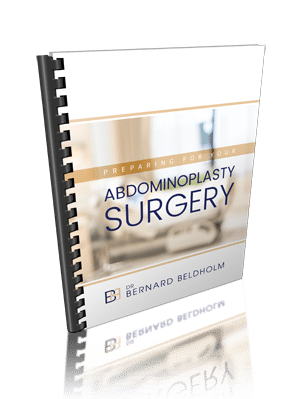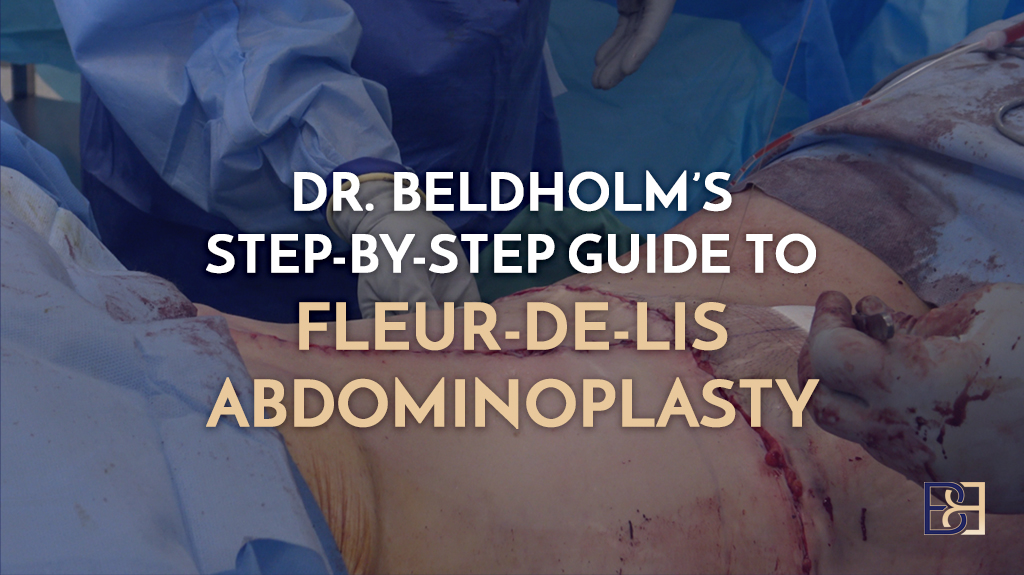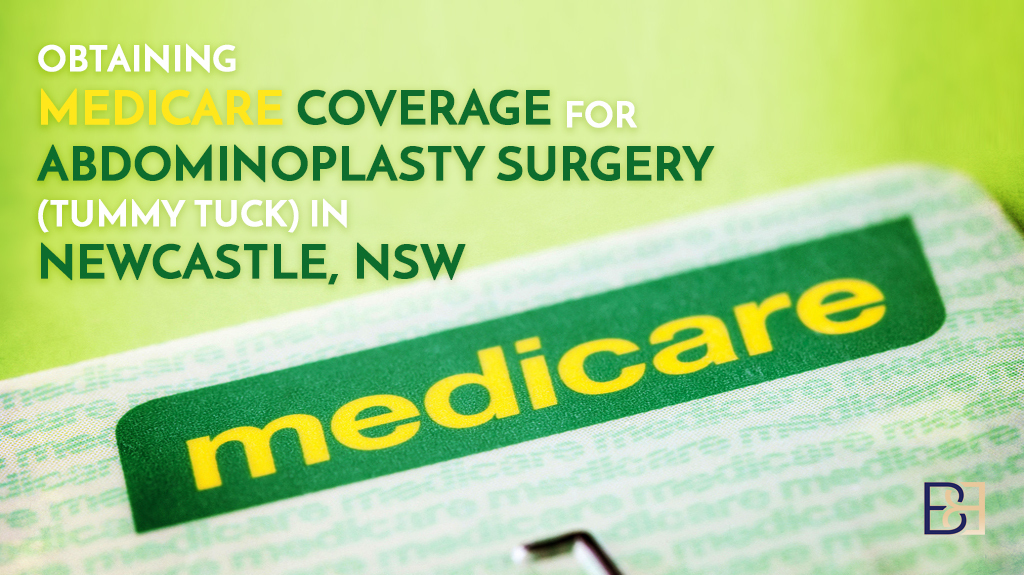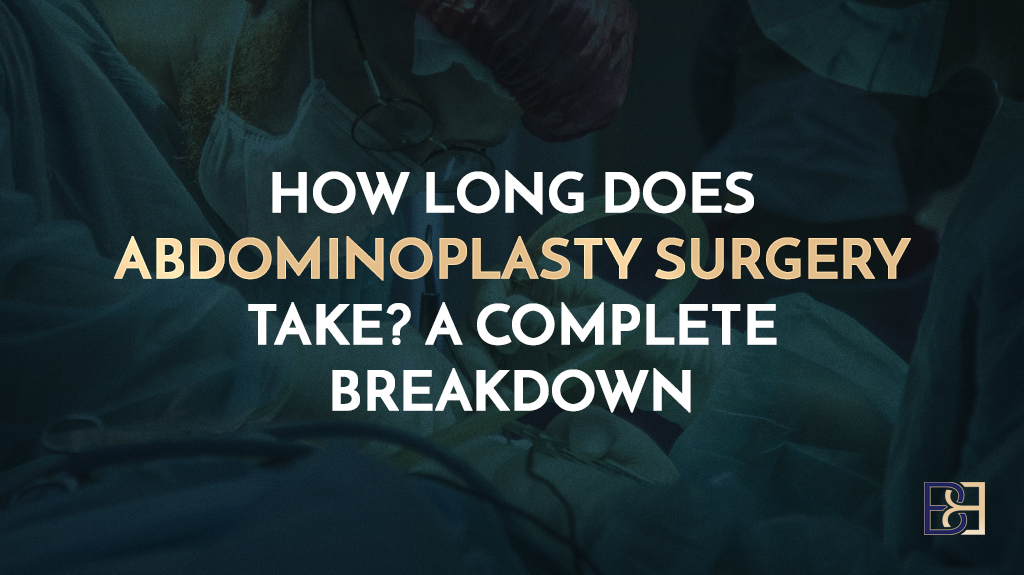Abdominoplasty has been widely recognised as a successful solution for excess skin and fat in the abdominal area following massive weight loss. Before we start any treatment, it is necessary to book a consultation session where we’ll discuss everything you need to know about your abdominoplasty procedure.
Abdominoplasty is a major surgery that targets excess fat and skin on the abdomen and strengthens separated abdominal muscles (diastasis recti) following bariatric surgery or post-pregnancy. But before getting an Abdominoplasty, it is important for us to meet for a thorough consultation.

Book your appointment online now
To prepare for your abdominoplasty surgery, it is important to discuss the different types of procedures available, how long the recovery process will be, and your personal medical history. The success of a consultation depends on how thoroughly we review your goals, expectations, and any previous surgery you may have had. Join me in this discussion as we uncover how to go plan for the consultation.

What Happens During An Abdominoplasty Consultation?
During the consultation, we will discuss what the procedure involves, potential risks, and complications associated with abdominoplasty and review the entire post-abdominoplasty journey.
Some of the major talking points will include:
Personal Medical Information
Gathering relevant medical information helps me determine your general health status and identify potential complications. I encourage you to include any chronic diseases, prior surgeries, and ongoing prescriptions when gathering your medical information. If you plan to get pregnant, you should also mention this so we can devise a timeline that works in your favour. Disclosing your medical condition is essential for a successful consultation and desirable results.
Surgical Expectations
During your consultation, you should tell me in detail what you expect from your surgery. Are you looking to remove excess skin, lose stubborn fatty tissue, correct diastasis recti, define your waist, or develop a firmer abdominal profile? All these will be discussed during your visit. Contrary to popular belief, abdominoplasty offers more than cosmetic benefits. If your functionality is affected by loose skin, stubborn fat, or separated abdominal muscles, do not hesitate to bring that up.
Past Surgeries
You should mention any previous surgeries that may directly impact your abdominoplasty results. When discussing your surgical history, you should mention the type of surgeries you’ve undergone and how this historical data could influence your current surgical status. Lastly, discussing any complications or long-term effects from your previous surgeries helps us to prepare effectively.
Lifestyle
Some habits like smoking, alcohol consumption, and exercise are important to disclose during your consultation. Smoking, for example, causes vasoconstriction, which derails the recovery process by reducing the oxygen supply. I also encourage my patients to get an abdominoplasty surgery when they have achieved a stable weight. Substantial weight loss or significant fluctuations can have a major impact on the final results. During our consultation, we will discuss the healthy habits you can incorporate into your routine to prepare for your tummy tuck (Abdominoplasty) procedure, including a healthy diet and exercise.
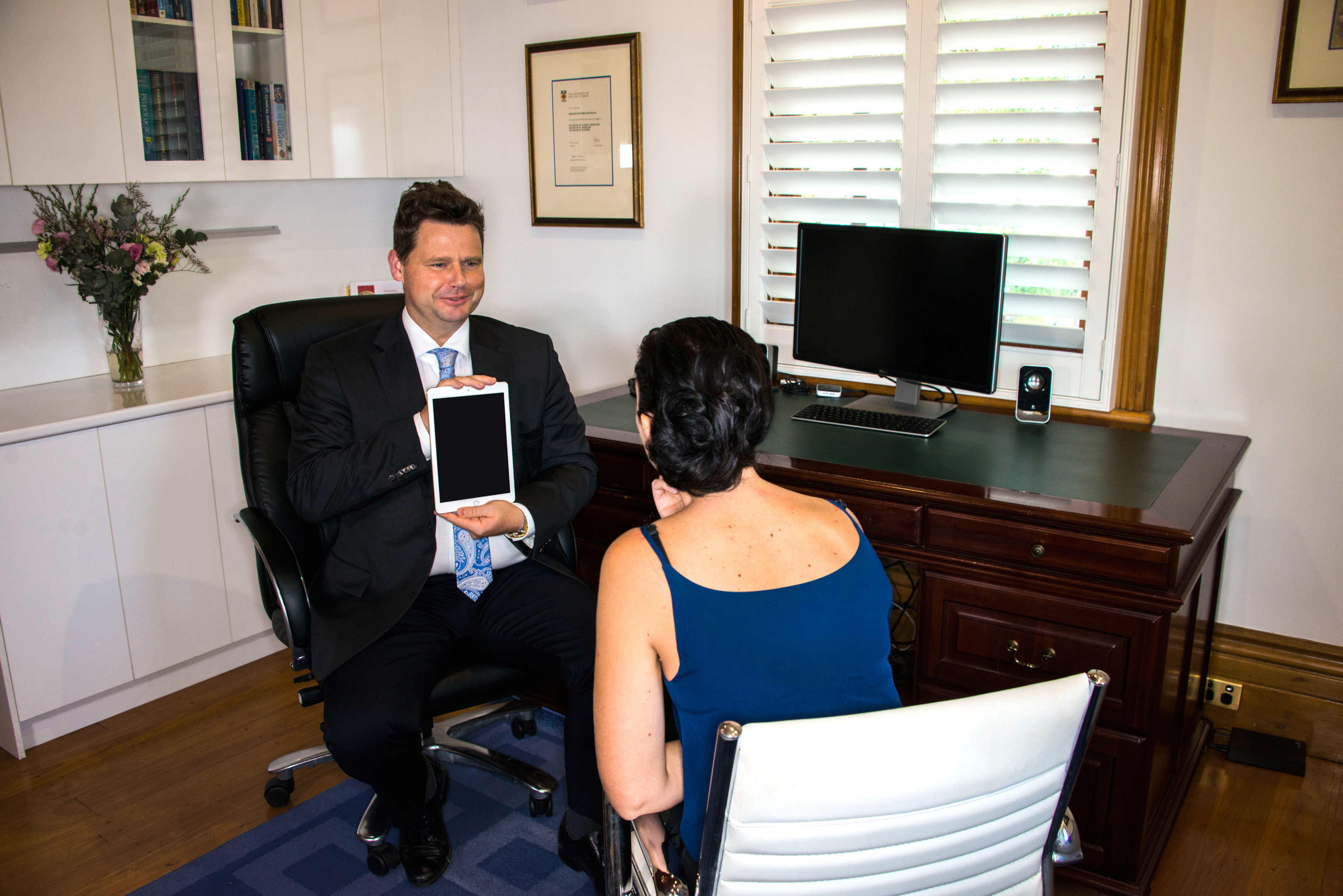
Dr. Beldholm’s Comprehensive Consultation Process
During the consultation, I will:
Assess Your Health
Assessing your health gives me hands-on insight into your overall readiness for surgery and provides a window into any underlying illnesses that may affect the quality of the surgery. During assessment, I perform a physical examination to help me gauge the extent of skin laxity and abdominal anatomy and what we will need when removing excess skin. I will also calculate your body mass index (BMI). This approach will help me personalise a treatment plan for you.
Discuss Surgical Options
The beauty of abdominoplasty is in its diversity. I use different types of abdominoplasty procedures to meet the needs of my clients. Some of the most common abdominoplasties are full, mini, extended, and Fleur-de-Lis. Each of these surgeries targets particular needs and goals. For example, according to an article by NCBI, “[f]leur-de-Lis abdominoplasty is suitable for patients with excess skin in both the vertical and transverse orientation.”
Take Photos
I take photos during a consultation as a visual reminder of before the surgery. These photos help you to compare your results without any bias. The photos also help determine the incisional point where scars will be less visible.
Devise a Treatment Plan
Based on our discussion, I will recommend a personalised plan outlining the surgical procedure, the expected results, and any necessary follow-up steps. I do not use a one-size-fits-all approach to treatment planning, because what works for one patient might not work for another.
Review Risks
Like any other medical procedure, abdominoplasty has its set of risks and complications, however, we have put in measures to mitigate these risks. We ensure that your health is our priority. The following are some of the most prevalent risks:
Infection: Infection of the wound slows the healing process and alters the final abdominoplasty results.
Scarring: The wound will heal, leaving behind visible scarring. The visibility of the scar depends on where the incision cut is made or how well the wound heals.
Seroma: Abdominoplasty affects the drainage system of the lower abdomen during surgery, causing fluid buildup.
Haematoma: It is the accumulation of blood around the incisional site. It is caused by trauma during surgery. This usually needs to be treated in the operating theatre
Anaesthesia complications: Anaesthesia can cause an allergic reaction or respiratory complications. Make sure you communicate with me about any medical allergies.
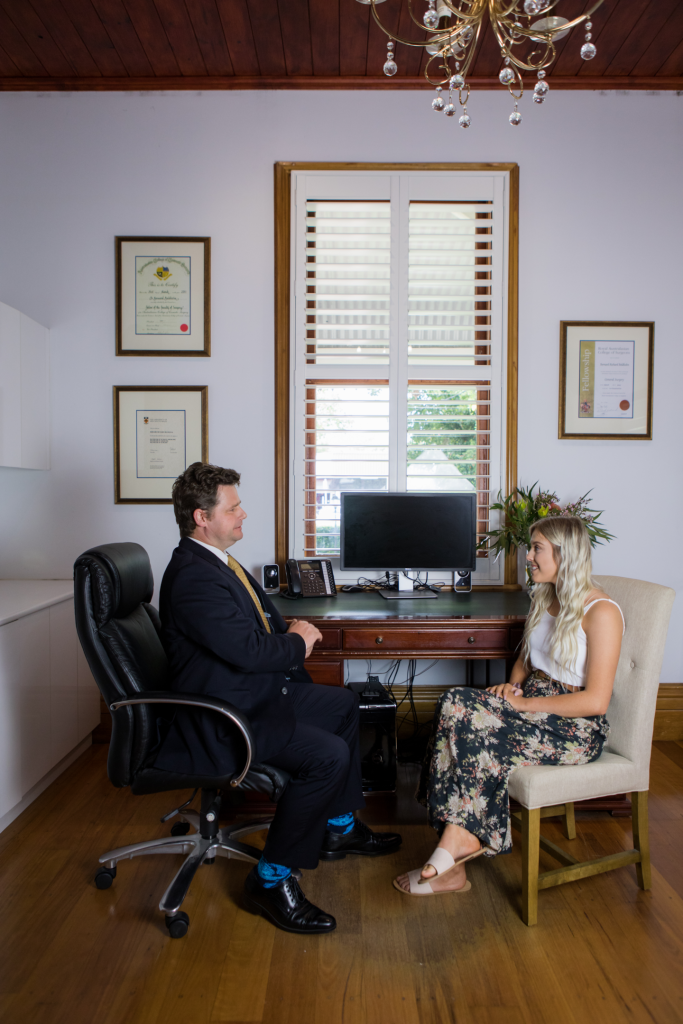
How I Know Whether The Consultation Was Successful
An abdominoplasty consultation is necessary to clarify communication between you and a surgeon. During this time,communicate your expectations for the surgery. To debunk any unrealistic expectations, I will offer an honest and transparent overview of what the surgery can or cannot do for you.
A typical consultation session lasts for 45 to 60 minutes, during which I will answer any questions you have. Your consultation was successful if you left my office feeling reassured about the success of the surgery. Most of the time, people walk into my office excited yet scared of their decision to get an abdominoplasty. I encourage my patients to ask questions without being afraid or embarrassed. It is my job to answer you.
After a consultation with me, the patient coordinator will confirm the availability of your preferred surgery dates and give you a price quotation. You are not obligated to book a surgery or pay the hospital fees until you’re ready.

What To Ask Dr. Bernard During Consultation
Before you attend your consultation session, you should prepare yourself thoroughly by compiling a list of questions and concerns for me to answer. The more clarity you have on abdominoplasty (tummy tuck), the easier it will be for you to make the right medical decisions. Below are some of the questions to consider when planning your abdominoplasty consultation.
#1: Do I qualify for abdominoplasty surgery?
Whether you qualify for an abdominoplasty surgery depends on several factors. After assessing you to determine your overall health, I advise you on the available types of abdominoplasties and the best ones for your situation. Sometimes, you may need abdominoplasty with a combination of hernia repair or liposuction.
If you are a post-pregnancy patient, I advise waiting one year after delivery to get an abdominoplasty surgery. This rest time gives your body enough time to rest and heal undisturbed. After pregnancy, the uterus takes a few weeks to revert to its original size. Your diastasis recti (muscle separation) will also change over the following 12 months.
#2: What are your qualifications?
I am a registered medical practitioner (MED0001186274), M.B.B.S B.Sc (MED) FRACS, and a specialist surgeon who champions personalised treatment and empathy for patients. I have been a doctor for more than 25 years and a specialist surgeon performing body contouring surgery for more than 15 years. My clinic is a friendly institution with hardworking and compassionate employees. Make a consultation today for a seamless abdominoplasty journey.
#3: What is the cost of Abdominoplasty?
The cost of abdominoplasty varies depending on the type of the procedure. Some abdominoplasty procedures are more complex and require more time in the operating room. The more invasive the surgery is, the higher the price. Most abdominoplasty procedures start at $6,990 upwards. Private health Insurance may cover a portion of your abdominoplasty if it is a medical necessity. Contact your private health insurer to inquire about their coverage for your situation and any out-of-pocket costs you may incur.

Disclaimer: Operation performed by Dr Bernard Beldholm. Adult content, surgery has risks; individual results vary, seek 2nd opinion. Please see the full disclaimer.
#4: Do you have photographic evidence?
Yes. During consultation, I will show you before-and-after photos of previous patients. This will give you a clear point of reference on what to expect after your surgery while also telling you whether my expertise aligns with your aesthetic goals. You need to see real-life examples of surgical sites to understand the potential results better.
I take before-and-after pictures of my clients as visual evidence of my expertise. If you are worried about privacy, I have measures to protect your identity and medical records. Your images will always be private unless you give me specific consent to share them.
#5: What is the standard recovery process?
A standard recovery process post abdominoplasty involves several stages. Immediately after your abdominoplasty surgery, you will stay overnight in the hospital for monitoring. The first few weeks after your surgery should be put aside for rest to avoid poor wound healing. You should take some time off work to avoid strenuous activities that may re-open the incision wound or cause other complications.
You may also experience pain and discomfort in the first few weeks after surgery. These symptoms are signs that your body is adjusting to its new form. However, do not hesitate to reach out if you notice changes around your incisional wound.
Every patient’s recovery speed varies depending on how well they follow their post-abdominoplasty guidelines. To speed up your recovery process, ensure that you do light exercises like walking to prevent the formation of blood clots, which lead to Deep Vein Thrombosis, and promote oxygen circulation. Incorporating appropriate exercise program ensure optimal healing and minimal complications.
#6: Are there complications associated with abdominoplasty?
All operations have risks, which vary depending on several factors, including background medical history.
A study by NCBI states that “[s]eromas and hematomas are relatively common postoperative complications, occurring in up to 1/3 of cases. If left untreated, these can result in necrosis of the flap from lack of blood supply or infections, which can destroy the flap and are potentially life-threatening. Placement of closed-suction drainage systems can help decrease the incidence of accumulation of these fluids anecdotally, though high-quality data are not available to demonstrate efficacy.”
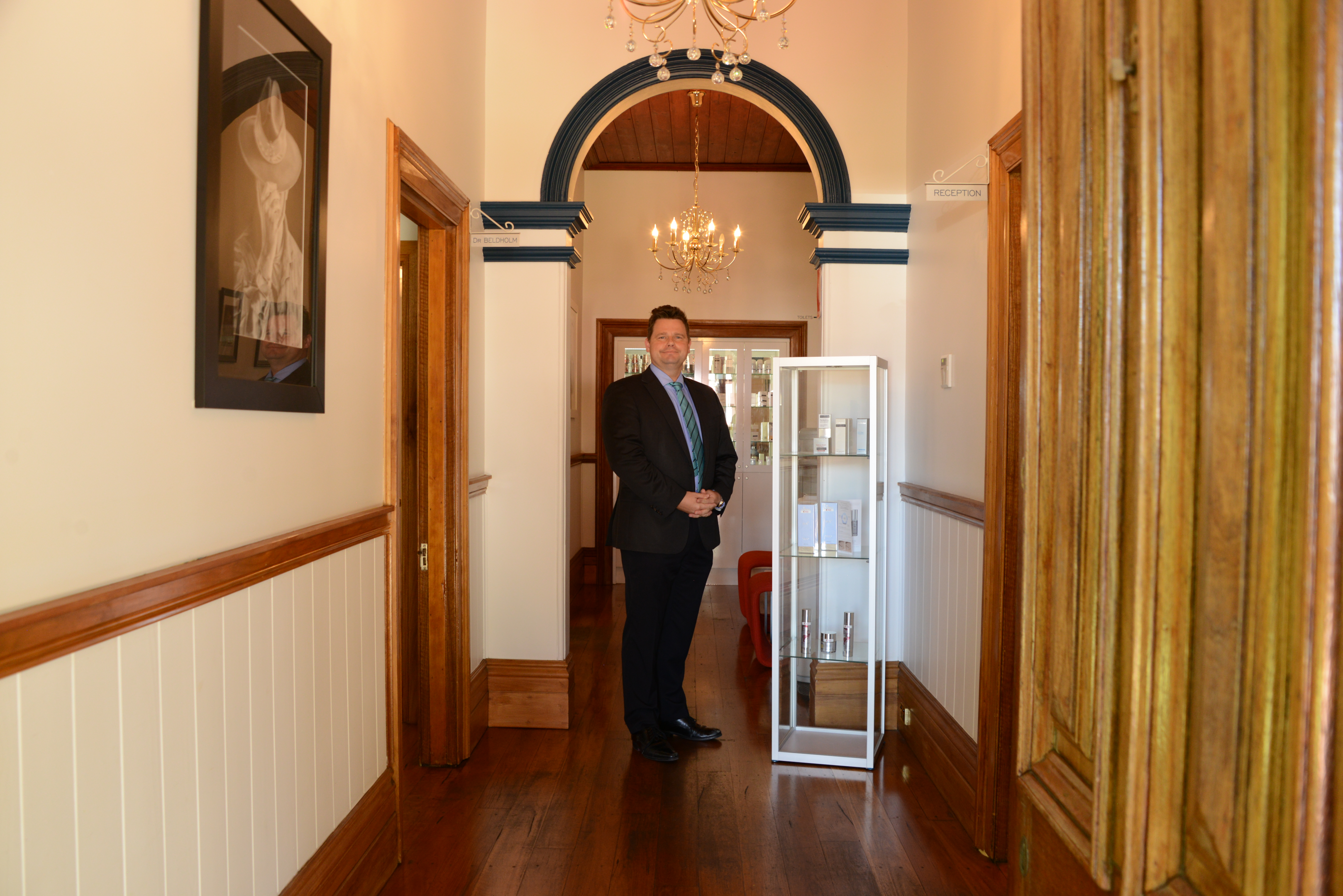
Dr. Beldholm’s Final Thoughts
Approaching a consultation with readiness is an essential component of successful surgery. After booking your consultation, prepare a set of questions and concerns you may have and compile a list. It is also essential to gather all your medical records as they may contain crucial information. This should include a list of current medications, any allergies you may have, prior illnesses and surgeries, and all surgical complications that we need to be aware of. Don’t be nervous about asking questions. Book a consultation today for a personalised treatment plan and professional recommendations.
Book your appointment online now
References
Mitchell, R. T., & Rubin, J. P. (2014). The Fleur-De-Lis abdominoplasty. Clinics in plastic surgery, 41(4), 673–680.
Kahramanca, Ş., Kaya, O., Azılı, C., Güzel, H., Özgehan, G., & İrem, B. (2013). The role of general surgery consultations in patient management. Turkish Journal of Surgery/Ulusal Cerrahi Dergisi, 29(1), 20-24.
Thilen, S. R., Woersching, A. L., Cornea, A. M., Lowy, E., Weaver, E. M., & Treggiari, M. M. (2018). Surgical speciality and preoperative medical consultation based on commercial health insurance claims. Perioperative Medicine, 7.
Chowdhry, S., Davis, J., Boyd, T., Choo, J., Brooks, R. M., Kelishadi, S. S., Tutela, J. P., Yonick, D., & Wilhelmi, B. J. (2015). Safe Tummy Tuck: Anatomy and Strategy to Avoid Injury to the Lateral Femoral Cutaneous Nerve During Abdominoplasty. Eplasty, 15.
Sorensen, M. J., Bessen, S., Danford, J., Fleischer, C., & Wong, S. L. (2020). Telemedicine for Surgical Consultations – Pandemic Response or Here to Stay?: A Report of Public Perceptions. Annals of Surgery, 272(3), e174.
Egnew TR, Wilson HJ. Role modelling the doctor-patient relationship in the clinical curriculum. Family Medicine. 2011;43:99–104.
Katz R, Cimino L, Vitkun S. Preoperative medical consultations: impact on perioperative management and surgical outcome. Can J Anaesth. 2005;52(7):697–702.
Auerbach AD, Rasic MA, Sehgal N, Ide B, Stone B, Maselli J. Opportunity missed: medical consultation, resource use, and quality of care of patients undergoing major surgery. Arch Intern Moed. 2007;167(21):2338–2344.

